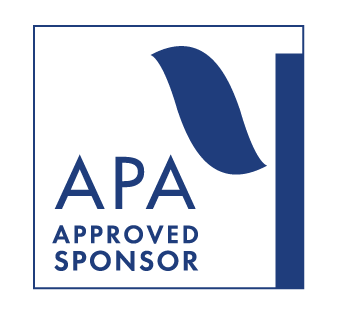A brief, yet comprehensive Zoom videocourse (13, 90-minute classes), that will develop and deepen students' practice of psychodynamic psychotherapy and introduce them to psychoanalysis.
For many students of analytic theory and practice, it is not so easy to find guidance and company in the process of deepening their work. This course is designed for advanced students to explore topics and hear disguised clinical case material with others who desire a deeper dive into analytic thinking and working. Join like-minded clinicians who are interested in developing their psychoanalytic psychotherapy practice or considering psychoanalytic training.
The International Institute for Psychoanalytic Training (IIPT) is offering a seminar:
Introduction to Psychoanalysis, spanning the fall 2022 and spring 2023 terms. Participants will experience a brief, yet comprehensive course (13, 90-minute classes), that will develop and deepen their practice of psychodynamic psychotherapy and introduce them to psychoanalysis.
Prerequisites: The course is designed for advanced students who have an introductory exposure to psychodynamic theory and practice.
Program Chair
Jane Garbose MA, LADC
Program Date(s):
September 6, 2022 - April 11, 2023Course Schedule
9:00am-10:30am US ET
Program Faculty
Jane Garbose MA, LADC
Program Chair
Educational Objectives
After completing this course, participants will be able to:
- Explain the difference between an ethical attitude and an analytic attitude.
- Identify 2 aspects of a therapeutic sensibility that characterize a psychoanalytic orientation to psychotherapy.
- Explain Bleger’s statement that the frame is “dumb but not non-existent”.
- List 3 elements of the analytic frame.
- Detail 2 ingredients essential for securing a treatment environment
- Describe 3 ways in which a secure treatment environment engages the patient
- List the three areas of object-relations that are focused upon to derive a common pattern in psychodynamic formulation.
- In the assessment process, identify 2 elements involved in creating a holding environment.
- Identify 2 characteristics which indicate the middle phase of treatment.
- Name 1 shift in the way the patient/analyst work together in the middle phase
- Explain 2 elements of Jacobs’ thesis that the attitude taken by the conductors of world-class conductors relates to the practice of psychoanalysis.
- Describe 2 reasons why Ungar prefers the term “analysts in training” to “candidates”.
- Explain 1 difference between characterological versus situational defensive reactions.
- Describe 2 aspects of a depressive mode of experience.
- List 3 of Freud’s seventeen well-known ego mechanisms of defense.
- Describe how the analyst’s defensiveness is often a major factor in the creation of an enactment.
- Explain how the interpretive process itself may imperceptibly become an enactment and constitute the greatest source of countertransference difficulty.
- List 4 types of transference.
- List 2 ways there is a shift in the working relationship of the patient/analyst in the middle
and late phase. - Detail how dreams can offer an indication of pre termination.
- Explain how Klein’s theory of the depressive position can provide a reparative function in addressing heteronormative presuppositions in psychoanalytic theory
- Explain 2 ways that the term “cultural competence” has been criticized among academics and clinicians.
- Offer 3 areas of growth which indicate readiness for termination
- Describe one way in which the analyst’s countertransference is a marker for readiness
for the patient’s termination - Describe 2 differences between the common ways termination and psychoanalysis actually occur and the longstanding mythology of how it is supposed to occur.
- Explain the difference between life goals and treatment goals when it comes to termination of psychoanalysis.
- List 3 distinctive features of psychodynamic treatment.
- List 2 therapeutic techniques that predict the best treatment outcomes.
Continuing Education Credit Hours
19.5 CE credits
Tuition and Fees
General Registration $590
IPI Member Registration $500
Limited scholarship funds are available for this training: https://theipi.org/scholarships/
Membership Benefits
Become a member of IPI at any level and you will have the option of adding on a Zoom Pro account as one of your member benefits. Associate and Full Members also receive discounted registration fees for most of IPI’s events, a subscription to PEP Web, the online psychoanalytic library, and other benefits depending on membership level.
HIPAA compliant Zoom video accounts are an optional add on for all IPI memberships. IPI has a HIPAA Business Associate Agreement with Zoom, which provides a HIPAA compliant platform for our accounts. HIPPA compliance is strongly recommended for all internet-mediated clinical work and clinical teaching. The “+ Zoom Pro” add-on to the IPI membership gives the user the ability to host online meetings with multiple people at the same time. [Current members can upgrade to the “+ Zoom Pro” account and only pay the difference in price from your current membership level.]
Click for IPI Membership and Zoom Account information
Should you have any questions about the program or the application process, please feel free to contact:
Jane Garbose - iiptadmissions@theipi.org
Continuing Education Information
The International Psychotherapy Institute, IPI, is approved by The American Psychological Association to sponsor continuing education for psychologists. IPI maintains responsibility for the program and its content. The International Psychotherapy Institute has been approved by NBCC as an Approved Continuing Education Provider, ACEP No. 6017. Programs that do not qualify for NBCC credit are clearly identified. The International Psychotherapy Institute is responsible for all aspects of the programs. The International Psychotherapy Institute is authorized by the Board of Social Work Examiners in Maryland to sponsor social work continuing education learning activities and maintains full responsibility for this program. This training qualifies for Category I continuing education units. The International Psychotherapy Institute is recognized by the New York State Education Department’s State Board for Social Work as an approved provider of continuing education for licensed social workers #SW-0299.
Participants are responsible for verifying that IPI CE credit is accepted by the licensing boards in their own states.



